DOI:
https://doi.org/10.38017/23228040.801Keywords:
personal finance, rural economy, financial education, rural familyAbstract
This article analyzes the management of personal finances of rural families in the village of Runta in Tunja municipality, whose purpose is to identify the variables that indicate the management of their economic resources and, therefore, the making of sound decisions that affect their economic stability and quality of life. The methodology followed is characterized by its quantitative descriptive-correlational approach, which seeks to detail the economic dynamics in terms of income, expenditure, savings, investment, and budget derived from the activities carried out by rural families based on a sample of 244 people. Among the results obtained, it was identified that the lack of financial education influences access to financial savings instruments that allow them to increase their profitability and diversify the rural economy, indicating the establishment of financial inclusion policies to promote agro-industry.
Downloads
References
Aguirre, M. (2015). Las Finanzas Personales y la Vida. Ridero.
Antonio, C., Peña, M. y López, C. (2020). Determinantes de la alfabetización financiera. Investigación administrativa, 49(125), 1-15. 456061607014
Avendaño, W., Rueda, G. y Velasco, B. (2021). Percepciones y habilidades financieras en estudiantes universitarios. Formación universitaria, 14(3), 95-104. https://doi.org/10.4067/S0718-50062021000300095
Baquero, E., Rocha, P. y Hernández, J. (2019). La educación financiera y el sector rural. Caso de estudio Pasca, Cundinamarca. Revista de la Universidad de La Salle, 7(9), 277-293.
Fernández, J., Fernández, M. y Soloaga, I. (2019). Enfoqueterritorial y análisis dinámico de la ruralidad: alcances y límites para el diseño de políticas de desarrollo rural innovadoras en América Latina y el Caribe. Documentos de Proyectos. Comisión Económica para América Latina y el Caribe (CEPAL). https://ri.ibero.mx/bitstream/handle/ibero/3112/SI_DOC_TRAB_11_.pdf?sequence=1
Ferrada, C., Díaz, D., Puraivan, E. y Silva, F. (2020). Análisis bibliométrico sobre Educación Financiera en Educación Primaria. Revista de Ciencias Sociales, XXVI(Núm. esp. 2), 225-242.
Hernández-Sampieri, R. & Torres, C. (2018). Metodología de la investigación (Vol. 4). McGraw-Hill Interamericana.
López, J., Hernández, S., Peláez, L., Sarmiento, G., Peña, M., Cueva, N. y Sánchez, J. (2022). Educación financiera en América Latina. Ciencia Latina Revista Científica Multidisciplinar, 6(1), 3810- 3826. https://doi.org/10.37811/cl_rcm.v6i1.1770
Mapharing, M. y Mbekomize, C. (2015). An Analysis of the Relationship between Demographic Characteristics and Financial Practices among Tertiary Students in Botswana. In Conference on Business Innovation and Growth (pp. 199-225).
Marsh, B. (2006). Examining the personal finance attitudes, behaviors, and knowledge levels of first-year and senior students at Baptist Universities in the State of Texas [Disertación doctoral, Bowling Green State University].
Mendoza, D., Vélez, Y. y Rodríguez, B. (2020). Impacto de la Economía Rural en Colombia. Revista CONVICCIONES, 7(13), 31-35.
Moreno, E., García, A. y Gutiérrez, L. (2017). Nivel de educación financiera en escenarios de educación superior. Un estudio empírico con estudiantes del área económico-administrativa. Revista iberoamericana de educación superior(8), 163-183.
Ramírez, L. (2006). Ruralidad y educación rural. Referentes para un Programa de Educación Rural en la Universidad Pedagógica Nacional. Revista Colombiana de educación, (51), 138-159.
Revista Semana. (2020, 9 de noviembre). ¿Cuál es el panorama de la educación en el campo colombiano? https://www.semana.com/educacion/articulo/cual-es-el-panorama-de-educacion-en-el-campo-colombiano/202033/
Rodríguez, N. (2019). Administración del dinero, en busca de la libertad financiera. Dictamen Libre, 13(25), 87-92. https://doi.org/10.18041/2619-4244/dl.25.5763
Santacoloma, L. (2015). Importancia de la economía campesina en los contextos contemporáneos: una mirada al caso colombiano. Entramado, 11(2), 38-50. http://dx.doi.org/10.18041/entramado.2015v11n2.22210
Vázques, J., Montalvo, R., Arredondo, F. y Amézquita, J. (2017). El ahorro en la carencia. Una reflexión sobre los hábitos de ahorro de familias de una zona vulnerable de México. Perspectivas, (39), 103-120.
Downloads
Published
How to Cite
Issue
Section
License

This work is licensed under a Creative Commons Attribution-NonCommercial-ShareAlike 4.0 International License.




